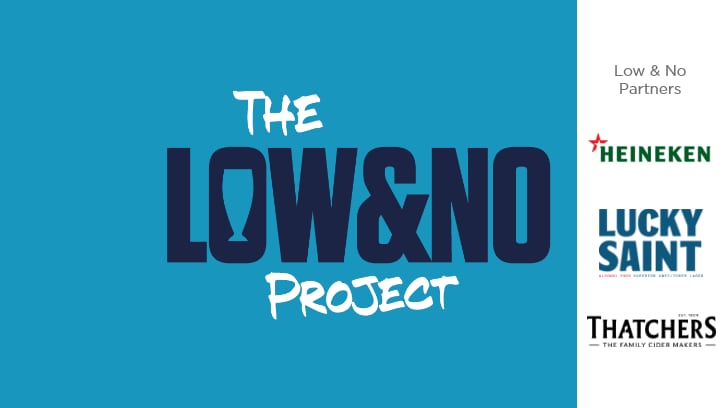The Department for Transport has said it is considering a new change to the limit from 80mg to 50mg in every 100ml of blood – matching the limit in Scotland, which was introduced just over 10 years ago - bringing it into line with the rest of Europe as part of a new Road Safety Strategy.
The proposals come amid concern about the number of people being killed or injured on Britain’s roads.
The latest statistics from the Department for Transport revealed a 7% increase in drink-driving fatalities on Britain’s roads over the past ten years. An estimated 260 people lost their lives in 2023 due to crashes involving drivers over the legal alcohol limit.
Although this marks a 14% decrease compared to 2022, the number remains higher than in 2013.
However, the prevalence of drink-driving in road deaths has fallen over time. In 1979, 26% of road deaths occurred in collisions where at least one driver or rider was over the drink-drive limit. This had fallen to 15% by 1989. Since then, the percentage of road deaths that are drink-drive related has varied between 12% and 18%. In 2023, the proportion was 16%.
There is no doubt the industry backs responsible retailing and the safety of its customers.
But there will likely be concerns about the impact this could have on rural and country pubs at an already challenging time for the trade.
Scotland has already seen the impact that dropping the drink-drive limit can have as it implemented the lower rate in 2014. At the time reports revealed it had a profound impact on the Scottish trade.
Scotland impact
Almost immediately there were country pubs reporting consumers who would go to the pub for a pint and a meal decided to stay home instead of risking the drive.
Research by the Scottish Licensed Trade Association (SLTA) in its State of the Nation Survey of 600 outlets at the time found that 55% showed a decline in like-for-like sales between 2015 vs 2014.
Interestingly, the data also showed that 38% of food outlets had also recorded a decline.
Two years after the implementation, bars and hotels were still feeling the impact with only 28% showing growth and 39% in year-on-year decline.
But 10 years on the market has changed. Pubs in Scotland are used to the drink driving regulations, as are consumers, Millennials and Gen Z are reportedly drinking less alcohol and there is a raft of good quality non-alcoholic products available for drivers.
SLTA managing director Colin Wilkinson said the industry did have some issues when the drink-drive limits came into force, especially in rural areas where there was a lack of transport links and there was evidence that more people were drinking at home.
But he has highlighted that it is now accepted legislation and said there are many more important issues facing the hospitality and pub sector now.
“Over the 10 years, attitudes have changed and I just think we got used to it and adapted as we did when the smoking ban came in,” he told The Morning Advertiser.
He predicted there might be some trading downturn, especially for rural pubs and areas without good public transport links, if the new legislation for England and Wales is implemented.
“There will be some impact, but going forward I think that should recover pretty quickly,” he advised.
There will inevitably be concern about the proposed legislation from rural and country pubs.
Stosie Madi chef-patron of the Parkers Arms, has called for more support for rural pubs.
She said this change risks delivering a “fatal hit” to rural pubs, and described it as a “death sentence for the country pub.”
Madi said: “Customers regularly travel several miles to us for a pint or dinner and lowering the limit could deter even those who would otherwise enjoy just one drink with dinner before heading home.”
Drink responsibly
But not all country pubs are worried about the plans.
Joe Buckley, licensee of the Tollemache Arms in Harrington, the Great British Pub of the Year 2024 said he was not concerned.
“Licensees should be championing guests to drink responsibly and now with huge changes in drinking habits, the rise of alcohol free and increase in taxi availability, the pub trade shouldn’t fear this. We always encourage sensible drinking, we have good relationships with local taxi companies and have a great range of non-alcoholic drinks, mocktails etc to make a trip to the pub not always been linked to alcohol,” Buckley said.
“Pubs are about the people, the memories and the hospitality.”
He called for the Government to implement more financial support by dropping VAT and business rates.
“Otherwise, there will be no pubs for pub goers to drive too in the first place,” he said.
Emma Harrison, managing director of the Three Hills in Bartlow, agreed and said she had no problem with restrictions on alcohol and driving.
“In fact, a total ban would be easier to implement and understand,” she said.
“As a destination pub we rely on customers being able to drive to us, but with an extensive range of non-alcoholic drinks and growing demand for them, it’s not a significant issue for us. Pubs need to be flexible and responsive to changing customer habits, and excellent low- or no-alcohol options can be an enjoyable part of a good dining experience.”
But is there a bigger issue here that consumers need more education and there needs to be better awareness of the rules?
Simply dropping the drink-drive limit isn’t necessarily the silver bullet to stop road accidents due to alcohol.
The Institute of Alcohol Studies (IAS), an organisation that works to reduce alcohol harm, welcomed the news but did highlight that changing the law should not be the only solution.
Dr Katherine Severi, chief executive, said: “However, evidence also shows that changing the law alone is not necessarily enough to reduce accidents. What is needed alongside a lower limit are more public transport options, greater enforcement such as more breath tests, and specialist rehabilitation courses for those with mental health and alcohol problems.”
IAS also called for action over drivers who combine alcohol and drugs as well as paying more attention to drink driving in alcohol harm and night-time economy policies.
The Campaign against Drink Driving trustee and former traffic police officer John Scruby, told the BBC that members of the public do not understand the drink driving limit.
He called for the Government to make it clear what the limit is for driving so they can understand it.
While concern prevails about the impact of this proposed legislation, the industry can but wait for the Government to detail its proposals.




